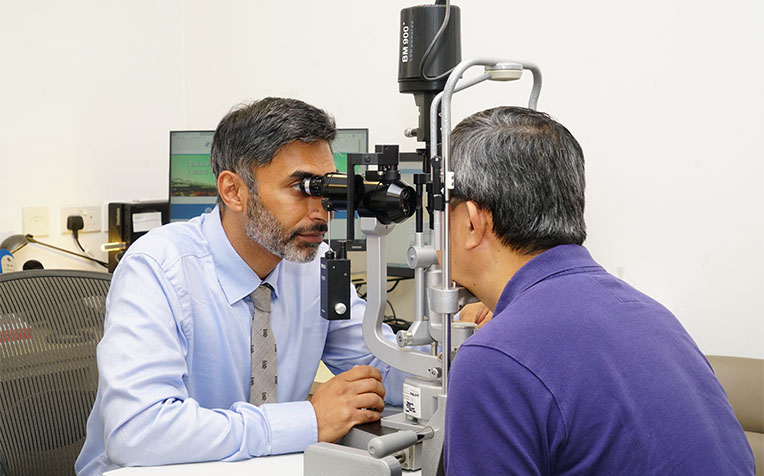
Glaucoma is found to be linked with a genetic mutation that causes exfoliation syndrome (XFS).
Glaucoma: A genetic mutation?
Singapore researchers have found that glaucoma is more likely in people carrying a mutated gene
The culprit is a mutated gene called CACNA1A. People who carry it are more likely to get exfoliation syndrome (XFS) which can lead to glaucoma. In glaucoma, fluid cannot properly drain from the eye, causing a build-up of pressure that damages the optic nerve and in severe cases causes blindness.
The mutated CACNA1A gene causes this because it interferes with the transport of calcium in the eyes, making it hard for the eyes to get rid of waste proteins. The waste clogs the eyes’ drainage system, causing fluid pressure to build up. But none of this is visible to the naked eye. It takes place inside the eyeballs.
Glaucoma: Genetic studies
A three-year study – one of the broadest global studies done – was recently led by Prof Aung Tin, Senior Consultant, Glaucoma Department, Singapore National Eye Centre (SNEC), a member of the SingHealth group, and Executive Director, Singapore Eye Research Institute (SERI), and Dr Khor Chiea Chuen, a Group Leader from A*Star’s Genome Institute of Singapore (GIS).
The study involved 90 centres in 17 countries on six continents, 8,400 multi-ethnic patients (more than 100 from Singapore), and 20,000 controls (people without XFS who were compared with those with XFS). The results were published in the scientific journal Nature Genetics.
The study revealed that about a quarter of the world’s population carries the mutated gene; these people have a 16 per cent to 25 per cent higher risk of developing XFS than those who do not have the mutation.
Glaucoma: Future research direction
Prof Aung said: “It opens avenues for therapy in the future. We won’t know this for some years, but once you have identified a pathway, it becomes something of interest as a potential target for therapy in the future.”
With the discovery that calcium is involved in depositing and accumulating protein in the eye, the researchers hope that therapies can be developed to treat the root cause of XFS by preventing waste protein from being dumped in the eyes. But they said this could take many years and that more research is needed.
Dr Khor said that the next phase of research will involve collecting eye tissue after surgery from patients with and without XFS, to see more directly how the CACNA1A mutation affects eye tissues.
But he cautioned that genetic testing to check for risk of XFS would be premature. “We, at least, need to find out first, how calcium affects the eye,” he said.
Click on page 2 to find out who is more at risk of carrying this mutated gene that causes glaucoma.
Ref: L20
Contributed by

















